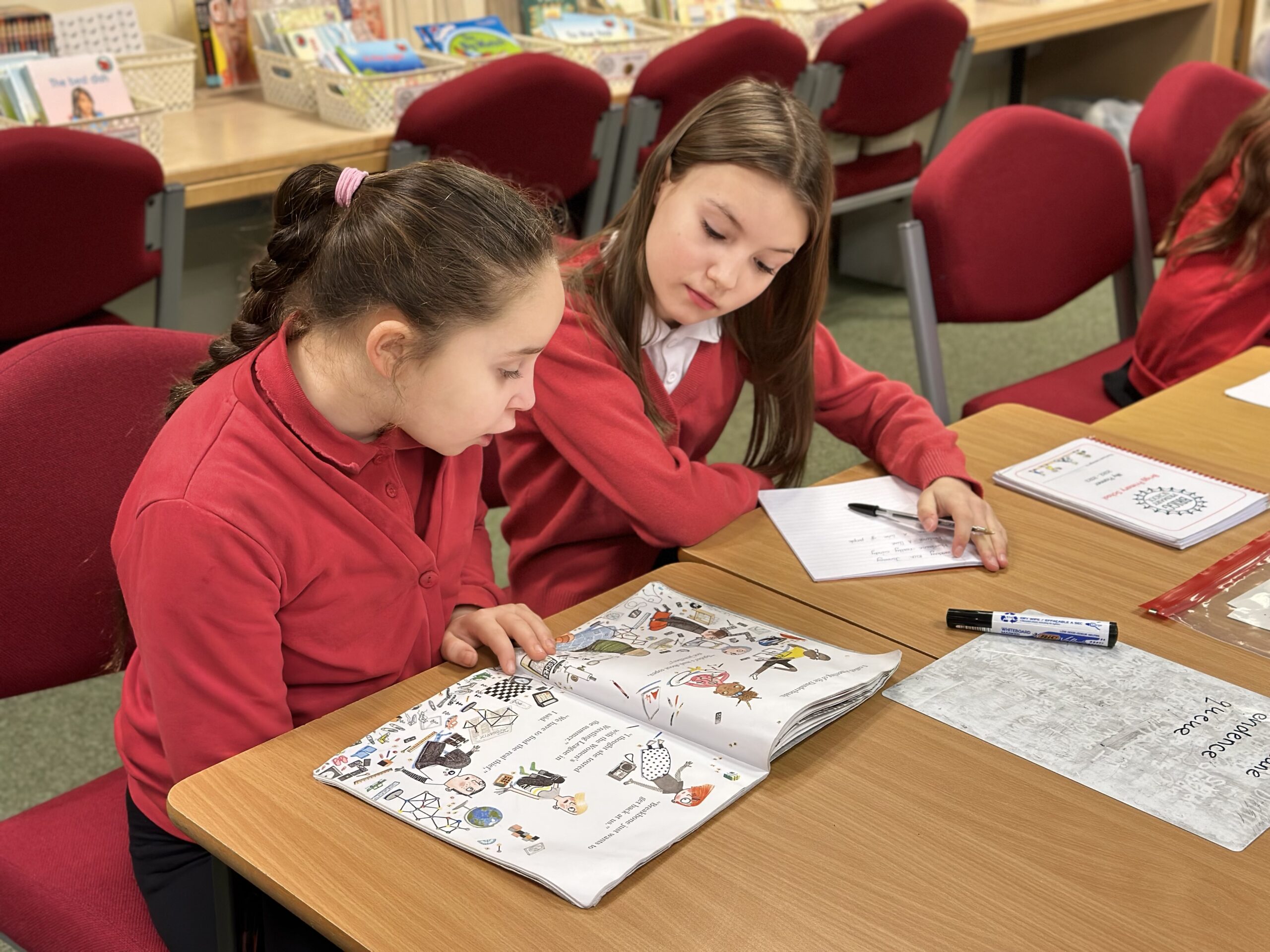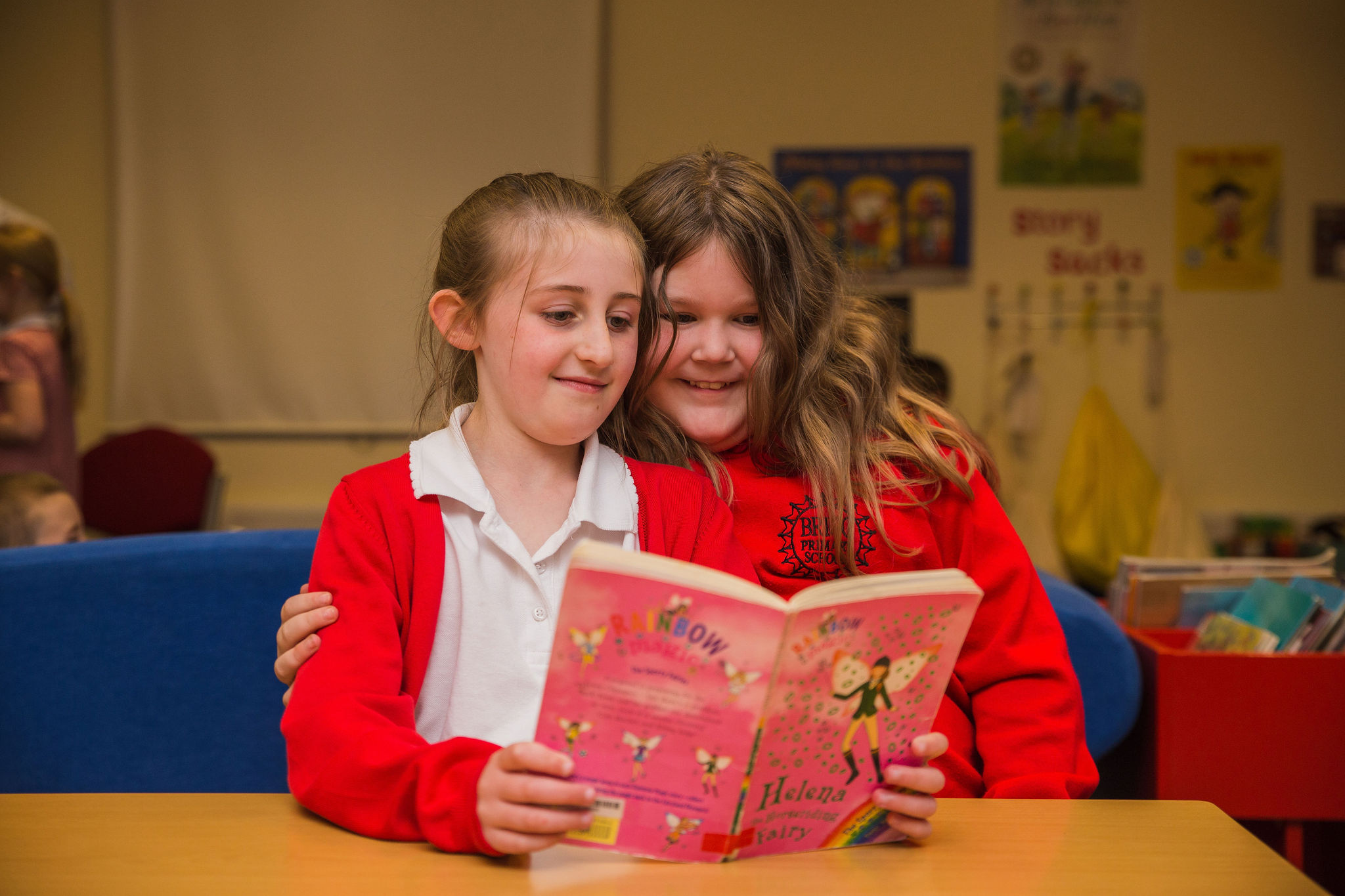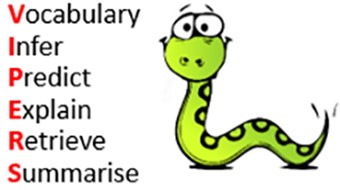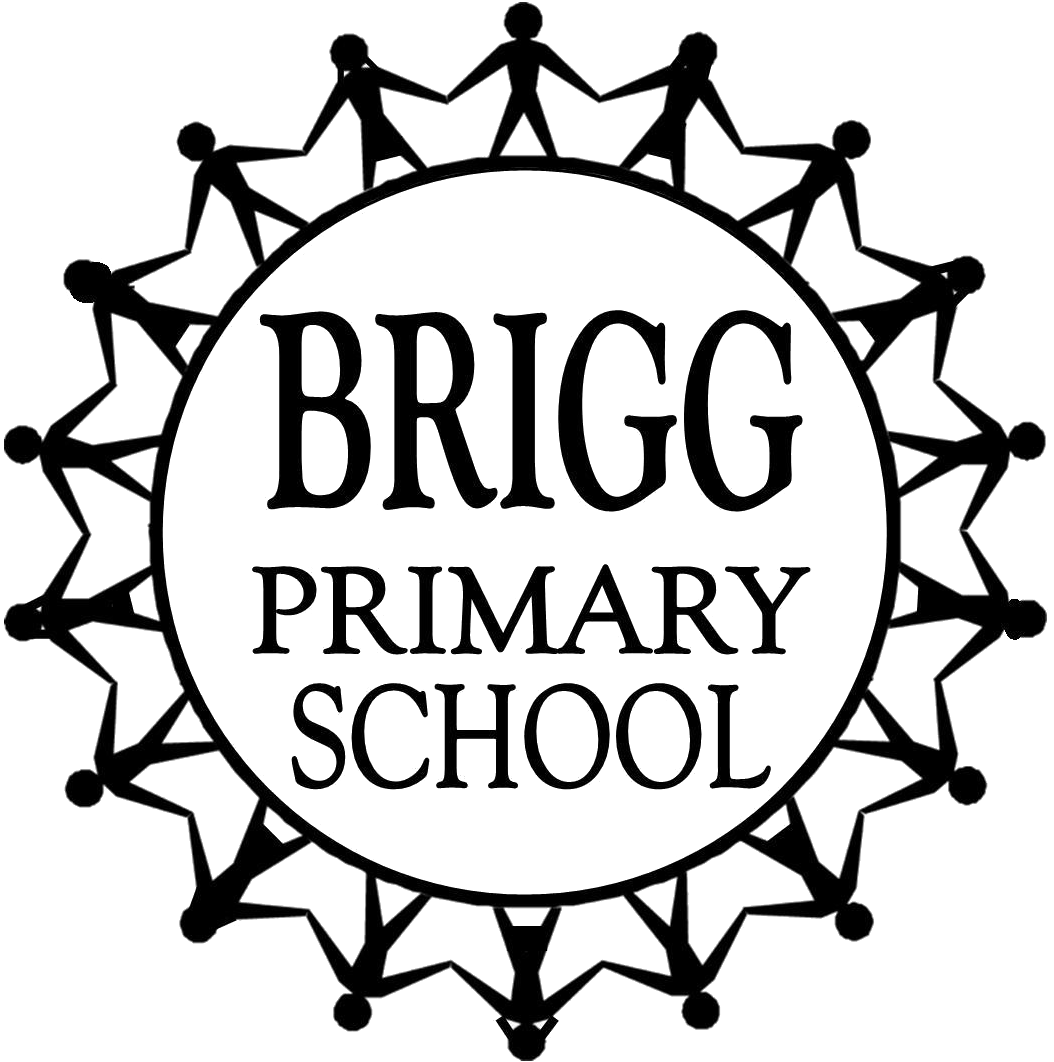KS2 Reading
At Brigg Primary School, we consider reading to be of great importance and the key to all other aspects of learning as it impacts on everything a child does. In school, your child may experience a wide range of reading opportunities which include: ·
- independent reading -every child will be given the opportunity to read independently for at least 20 minutes three times a week in school. They will also be able to complete Accelerated Reader quizzes during this time. Staff in school will hear children read during this time.
- whole class reading lessons – during which, children will learn how to answer comprehension questions linked to the class story and other age-appropriate texts
- shared text work in English lessons – comprehension group reading including sharing a text with other children
- research based lessons using computers or reference books

Reading Lessons
Twice a week the children are taught a specific reading skill using the VIPERS acronym (Vocabulary, Inference, Predict, Explain, Retrieve, Summarise/Sequence). During the lesson, the teacher will model how to answer a specific type of question using an extract from the class novel. The children will then independently answer similar questions using a new/unseen text.
Reading at home
We expect the children to read at least three times a week at home. Research says reading at home with a parent has a positive impact with on average 3 months additional progress after 22 weeks (EEF, 2015).
All children in the school have been provided with a Reading Planner. This should be brought into school each day with the child’s Accelerated Reader book. We ask parents to sign and date when they hear their child read at home. If they wish to make a comment when they hear their child read, there is a box for this also. To increase independence, we encourage our Year 5 and 6 children to sometimes read on their own at home but we do ask that their parent signs their planner to say they have read.
Accelerated Reader
All children in KS2, will bring home an Accelerated Reader book that will not only match their ability, but will also challenge them and develop their vocabulary. Each half term, children will complete an online comprehension test. The outcomes of these tests will help staff to direct children to the book shelves and school library that fall within this range. When they have finished the book, they will take a short electronic quiz that assesses their understanding of what they have read.


How can you help your child at home?
Here are some questions you may ask your child when reading a book with them to support their comprehension
Vocabulary
Find and explain the meaning of words in context
Example questions
- What do the words …… and …… suggest about the character, setting and mood?
- Which word tells you that….?
- Which keyword tells you about the character/setting/mood?
- Find one word in the text which means……
- Find and highlight the word that is closest in meaning ……
- Find a word or phrase which shows/suggests that…
Infer
Make and justify inferences using evidence from the text.
Example questions
- Find and copy a group of words which show that…
- How do these words make the reader feel? How does this paragraph suggest this?
- How do the descriptions of …… show that they are ……..
- How can you tell that……
- What impression of …… do you get from these paragraphs?
- What voice might these characters use?
- What was… thinking when…

Explain
Explain how information contributes to the overall experience
Example questions
- Explain how content is related and contributes to the meaning as a whole.
- Explain how meaning is enhanced through choice of language.
- Explain the themes and patterns that develop across the text.
Retrieve
Retrieve and record information and identify key details from fiction and non-fiction.
Example questions
- How would you describe this story/text? What genre is it? How do you know
- How did…?
- How often…?
- Who had…? Who is…? Who did….?
- What happened to…?
- What does…. do?
- How ….. is ……..?
- What can you learn from …… from this section
- Give one example of……
- The story is told from whose perspective?
Summarise
Summarise the main ideas from more than one paragraph
Example questions
- Can you number these events 1-5 in the order that they happened?
- What happened after …….?
- What was the first thing that happened in the story?
